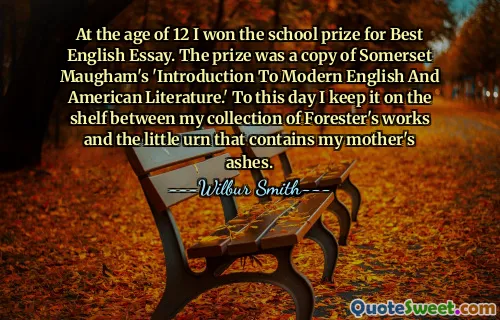My very photogenic mother died in a freak accident {picnic, lightning} when I was three, and, save for a pocket of warmth in the darkest past, nothing of her subsists within the hollows and dells of memory, over which, if you can still stand my style {I am writing under observation}, the sun of my infancy had set: surely, you all know those redolent remnants of day suspended, with the midges, about some hedge in bloom or suddenly entered and traversed by the rambler, at the bottom of a hill, in the summer dusk; a furry warmth, golden midges.
In Vladimir Nabokov's "Lolita," the narrator reminisces about his mother, who passed away in an unusual accident when he was just three years old. He reflects on the absence of her presence in his life, noting that the warmth of her memory has faded over time. Despite the profound loss, he tries to evoke the essence of his early childhood by describing the nostalgic imagery and sensations linked to his mother's fleeting existence, creating a contrast between joy and sorrow.
The narrator's style conveys a sense of bitter longing, as he likens his early memories to remnants of a beautiful day enveloped in twilight. He uses vivid imagery of nature, such as blooming hedges and golden midges, to portray the warmth and innocence of his childhood, which now feels distant. This passage reveals the complexity of his feelings, blending nostalgia with melancholy, and underscoring the lingering impact of his mother's absence as he grapples with his past.





